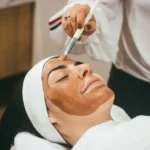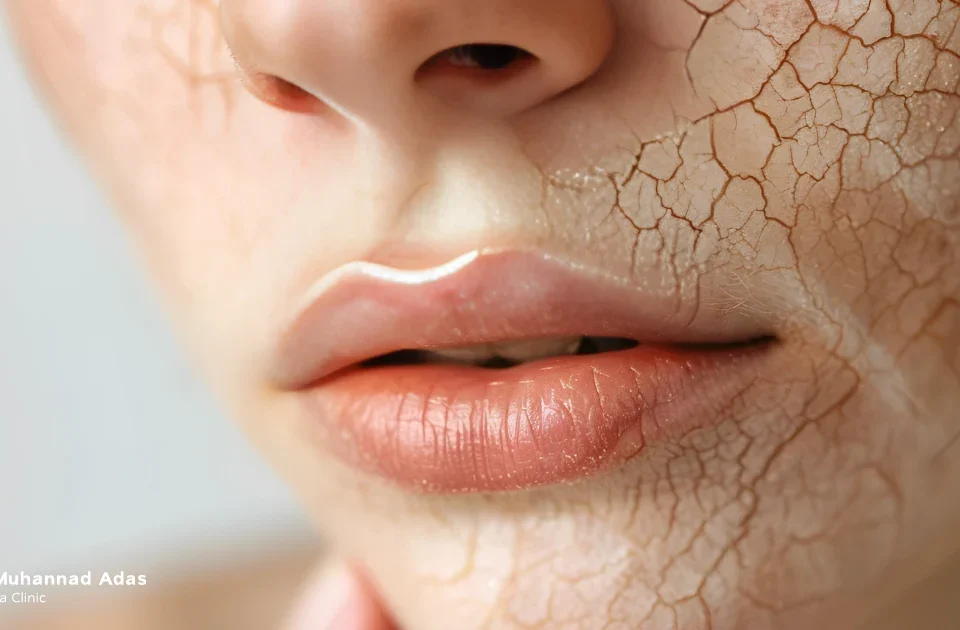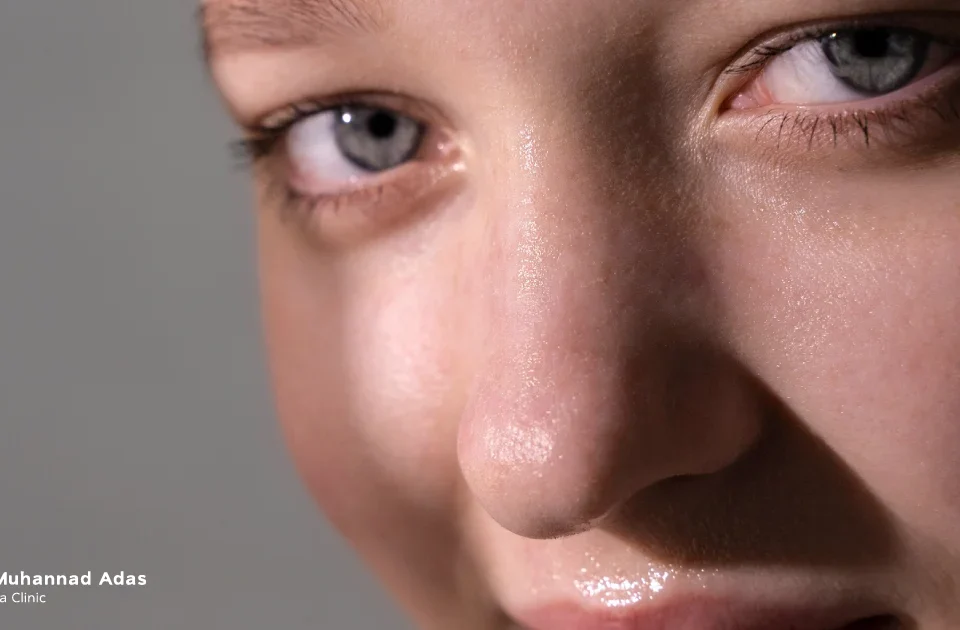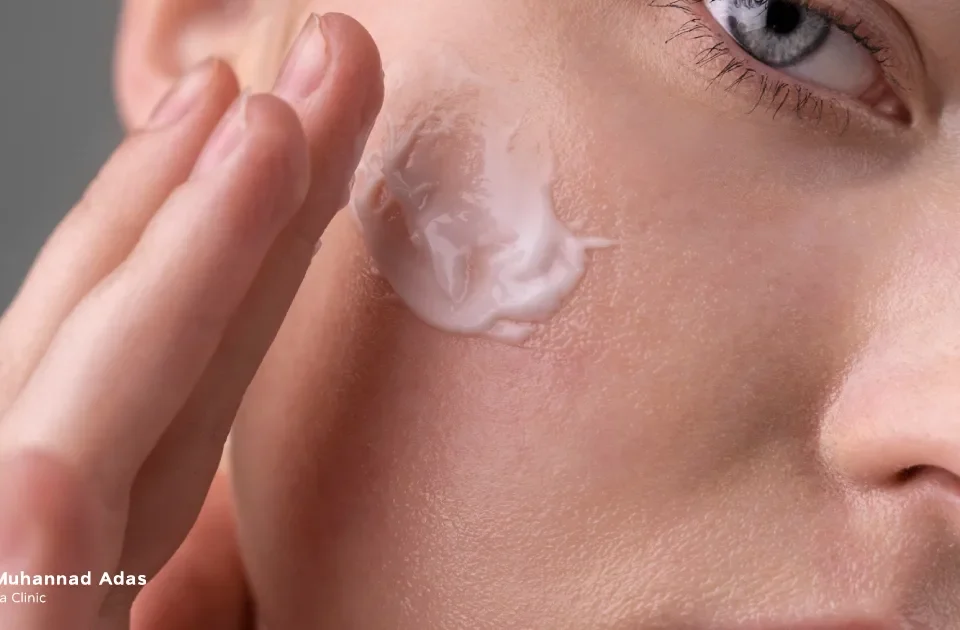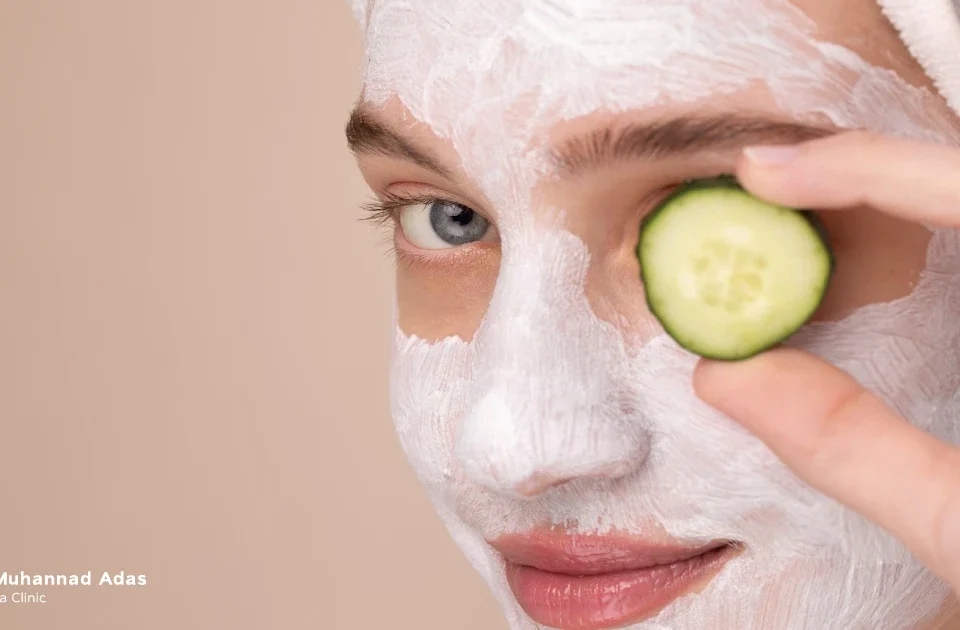Table of Contents
Winter is associated with cold weather & rain by a lot of people. For others it might be a nightmare to go through because of their health and skin issues. As the temperature drops, the air gets drier, and the humidity decreases, many people’s skin might be negatively affected and that leads to loss of moisture in the skin.
Since winter is approaching, it is important to mention the most common skin issues and take preventative measures to deal with them
Dry Skin
Causes of dry skin in winter
Dry skin is considered one of the most common problems in winter. When your skin is exposed to cold air outdoors and heat indoors, the skin might lose some of its water content leading to a loss of moisture and vitality. This leads to issues of dryness which is followed by peeling and irritation of the skin. Therefore, the problem may worsen if not dealt with by continuously hydrating the skin.
How to maintain skin hydration
To combat the problem of dry skin in winter, it is essential to continuously moisturize it. There are various levels and several products targeted to hydrate the skin such as lotions, creams and ointments which might be suitable in cases of severe dryness. You can also use creams that are rich in hydrating ingredients such as Hyaluronic acid, Glycerin and Ceramides to trap moisture inside the skin. You can apply these products before going out or instantly after showering and it is very essential to be consistent with using the products at all times.
You should also avoid taking prolonged hot showers as this can strip out your natural skin oils. Instead, choose lukewarm water and shorter showers. Additionally, using air humidifiers indoors can maintain the humidity levels at home, thus keeping your skin healthy.
Chapped Lips
Why do lips get chapped in winter?
The incidence of chapped lips is high in winter as a result of cold & dry air. The continuous licking of lips might also contribute to irritation. Lips are more prone to cracking since they are made of thin skin that is affected by environmental conditions & changes.
How to protect your lips in winter
It is important to keep moisturizing the lips, by using lip products rich in beeswax, shea butter or Lanolin. It is preferred to apply them daily, especially before going outdoors and getting exposed to cold air. Additionally, avoid licking your lips as the saliva might evaporate quickly causing the lips to dry. To maintain the hydration of your lips, drink the recommended amount of water daily.
Eczema
Causes of Eczema flare-ups
The occurrence of Eczema is not only related to winter, but it might get worse in low temperatures because of the cold weather and dry air. The skin will be more prone to the dangers of external factors which might increase its sensitivity and in turn worsen the symptoms. Red spots will appear on the skin, increased itchiness, and inflammation which will lead to skin peeling.
How to manage Eczema in winter
Eczema, which is also known as Atopic Dermatitis, requires a gentle skincare routine, like using anti-allergy & anti-itch products. It is also important to be cautious of using products containing fragrance to avoid skin irritation. In addition, applying cold water compresses on the irritated area while keeping the skin hydrated continuously by using a cream rich in moisturizing ingredients is key to promote skin health. It is also important to apply the product gently without severe rubbing.
In some cases, especially chronic ones, it is necessary to consult a dermatologist. Wet wraps may be used under the supervision of a specialized medical team. It may be recommended to use some drugs, ointments or other treatment methods.
Rosacea
Causes of Rosacea in winter
Rosacea may be aggravated in cold weather due to wind factors and indoor heating. It is considered a chronic skin condition that affects the face especially, the nose, chin, cheeks and forehead. It occurs through the spread of redness, blood vessels and worsening acne-like pimples on the skin. The symptoms may get worse and reach other body parts such as the head, ears or neck. It is crucial to deal with this condition instantly.
How to deal with Rosacea
Protect your skin by covering your face with a scarf or a mask before going outdoors. Use gentle skincare products that are free of fragrance and irritation causing ingredients. Avoid drinking hot beverages or spicy foods that can irritate the skin and cause redness. Keep moisturizing the skin constantly and very gently. Do not forget to consult a dermatologist that can prescribe medications and provide the appropriate treatment to reduce symptoms.
Sunburns & Wind-burns
Causes of sunburn and wind-burn in winter
Wind-Burn occurs when the skin is exposed to harsh cold winds and contrary to the popular belief, winter is also associated with sunburns due to harmful sun rays. Both result in redness and skin dryness due to the skin losing its natural oils. They are also very similar as sunburns are also associated with wind exposure and not ultraviolet rays.
How to prevent wind-burn and how to treat it
To prevent wind-burn, always protect your skin before going out by wearing a scarf or a mask to protect your face. You can also apply a moisturizing cream before heading out in addition to sunblock. Relieve your skin by using a gentle moisturizer containing Ceramides or Aloe vera gel and avoid showering with hot or cold water. In case of persisting symptoms, consult a dermatologist to review your condition.
Psoriasis
Causes of Psoriasis flare-ups in winter
Psoriasis is a common chronic skin condition that causes skin rashes, red peeling spots and pain sometimes. Psoriasis flares up in cold dry weather as sun exposure might worsen its symptoms.Psoriasis patients can not completely treat the disease but might be able to reduce the symptoms by using different treatments and improve their lifestyle.
Psoriasis treatment
You can follow instructions targeted towards Psoriasis patients by maintaining a skincare routine and continuously hydrating the skin. Showering with warm water or Epsom salt might reduce peeling and symptoms of itchiness. Phototherapy might also treat Psoriasis or oral drugs and injections. Do not hesitate to consult a dermatologist as soon as possible.
Cracked Heels
Causes of cracked heels
Cracked heels are also a common issue in winter due to dry air and low temperature. It can affect both men & women of all ages. These cracks may also result in pain for some individuals, in addition to bleeding sometimes. The reason for this is not moisturizing the heels of the feet constantly which might lead to dryness & cracking and the formation of thick skin in the area.
How to treat cracked heels
To treat the issue of cracked heels, it is essential to constantly hydrate the area and exfoliate it by removing dead skin cells. You can also use a pumice stone or foot file when showering and when the skin is smooth and damp, apply a foot cream containing Urea or Salicylic acid. In addition, wear cotton socks to maintain the moisture of the heels.
Acne
Cause of Acne flare-ups in winter
Acne gets worse in winter as the loss of sunlight leads to reduction in anti-inflammatory effects. The skin compensates by producing oils to counteract the dryness caused by cold weather and in turn clogs the pores which leads to the appearance of acne.
Advices to deal with acne
To deal with acne in winter, use a gentle moisturizer on the skin, free of irritating ingredients, and apply it cautiously. The moisturizer should be water based as oil based creams can worsen the condition instead of treating it. Additionally, use a cleanser twice daily and consume a balanced diet. The treatment of acne depends on how severe the case is.
Your skin may suffer from one or more of the previously mentioned skin concerns in winter, that is why you should follow the suitable practices to maintain a healthy skin throughout the season. The solution to treat it may be using gentle & effective products in addition to consulting a dermatologist if the symptoms worsen and persist.
For more information about skincare, visit the renowned dermatologist Dr. Mohanad Adas dradas.com. Book a consultation in case you face skin problems and concerns by calling the following number: (+962) 799377600 .
